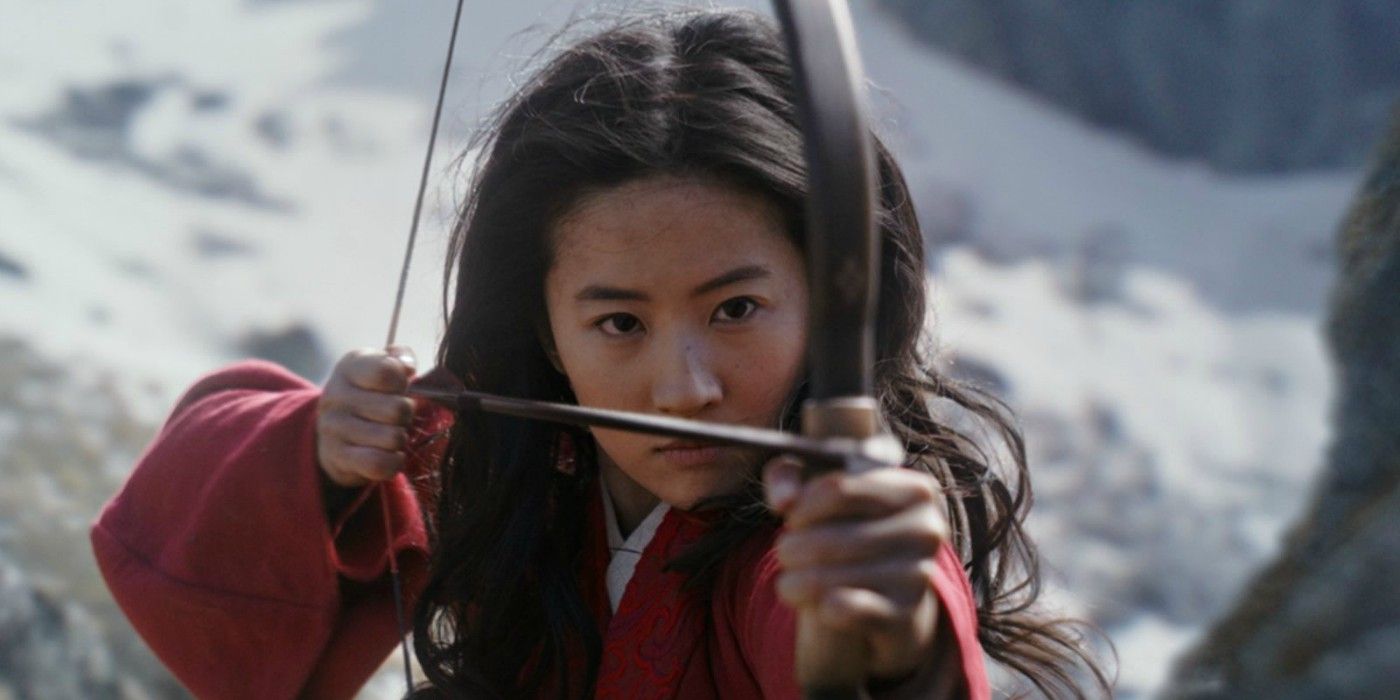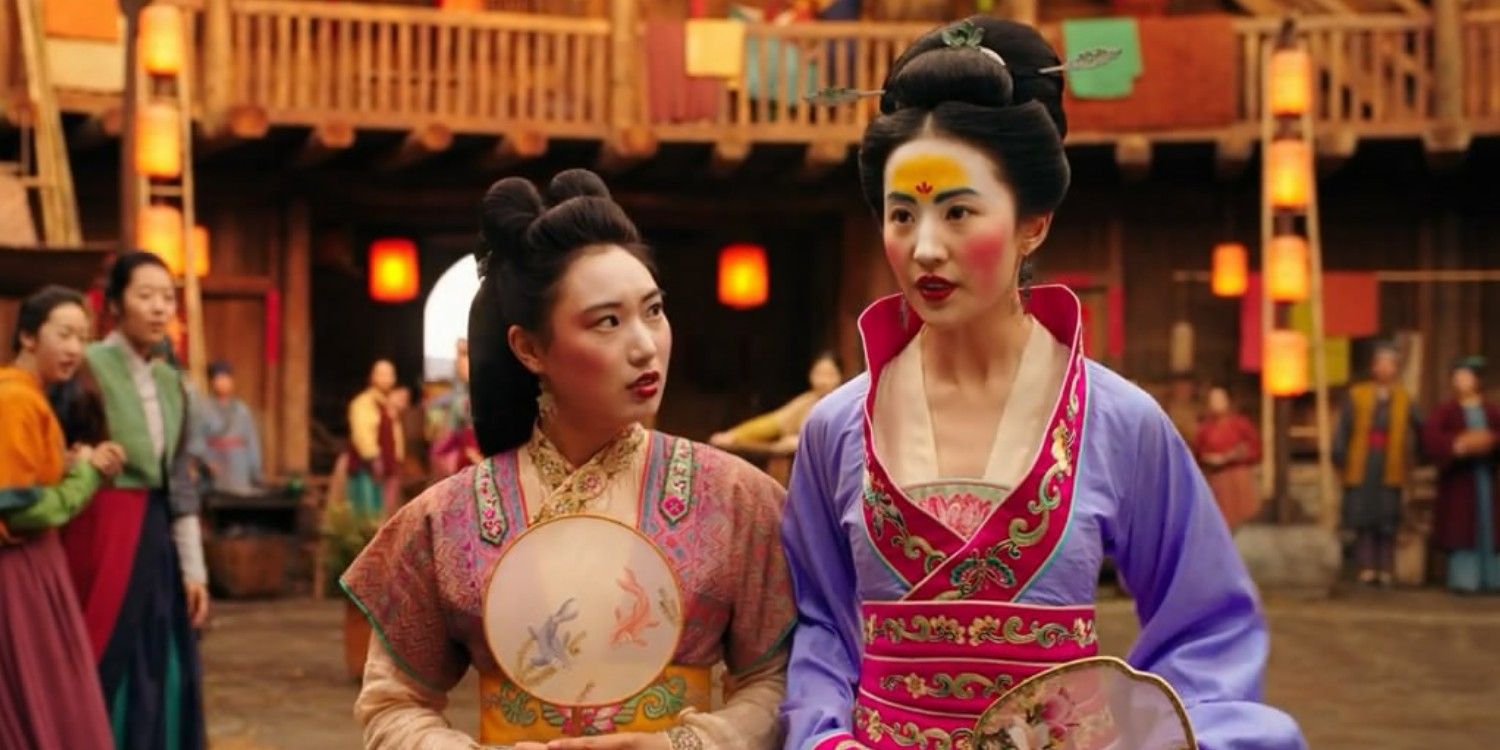Disney's newest movie, Mulan, is the latest offering in the company's live-action remakes built to cash in on childhood nostalgia. From the jump, the film was dogged by negativity and bad press was further compounded by the removal of Li Shang, Mushu and the animated version's iconic musical numbers. Disney assured fans this was to make the film more historically accurate.
Mulan was released on Disney+ Sept. 4, but members had to pay an additional $30 to access the movie. The reaction was immediate: Negative reviews came pouring in and the film flopped in the United States and China. To add insult to injury, the filmmakers added in the concept of chi, a cornerstone of Chinese beliefs, as a cheap way to power Mulan up. While Disney may have intended to create a positive role model for female empowerment, the use of chi ultimately undercuts the film's message.
Mulan presents chi as a mystical energy that males are pre-dispositioned to possess. Chi can be used by warriors to augment their physical abilities. For whatever reason, Mulan possesses an extraordinary amount of chi. This is demonstrated by Mulan's rooftop-flipping, gutter sliding and parkour mastery as a young girl when she chases a chicken. It's an inaccurate use of chi, demonstrating Disney's lack of cultural knowledge.
In Chinese culture, chi is the vital energy possessed by all living things. Saying only men have chi is as accurate as saying only men have blood. While Disney claims to want Mulan to be a historically accurate Chinese drama, it has turned chi into an East Asian version of the Force from Star Wars.
Chi wasn't part of the 1998 Mulan and it didn't need to be. The animated Mulan worked her way to the top by putting in extra hours and using her intelligence to think of creative solutions to problems. She didn't excel because she had a mystical force to rely on; in the beginning, she frequently failed. This is what made Mulan relatable and why her character was so appealing. She wasn't a born heroine. Mulan was an average woman who became an incredible warrior through a brilliant underdog journey.
Audiences loved Mulan because she struggled, not because she was destined to be a mystical warrior. They related with Mulan because she loved and cried just like one of them, not because she was a stoic badass who parkoured off roofs from birth. The original Mulan told everyone, especially young girls, that they could reach new heights through determination and hard work.
Adding chi into the live-action Mulan rudely tramples over the original movie's beautiful story. The vibrant and spunky protagonist from the animated classic has been replaced with a wooden-faced and quiet warrior who was born with an extraordinary amount of chi. There is no inspiring struggle to overcome the odds. In this universe, Mulan's greatest obstacle is to let go of her inhibitions about chi. She magically excels at everything without working hard, because she was born special.
This change completely destroys the emotion from the animated movie. Animated Mulan's ascendance was empowering because she started at rock bottom. Disney rips that away in the live-action version and invalidates Mulan's original journey, arguing that she needs natural talent, not hard work, to succeed.
Disney also added an unnecessary sister character who was not lucky enough to have chi and by the end, she's doomed to become a bride with no agency. This perplexing plot detail drives home the message that an average woman with no special talent can never compete with men, no matter how hard she works. In a story meant to empower women, Mulan is an outlier, not a role-model. This reinforces the harmful idea that women have to be extraordinarily gifted to stand with men instead of telling women their dreams are possible with hard work.
Additionally, live-action Mulan also perpetuates the harmful idea that femininity can never be a positive. Mulan only succeeds because she caters to masculine ideals of physical strength, stoicism and aggressiveness. In the animated movie, Mulan demonstrates empathy towards her comrades, which helps her excel. Live-action Mulan falls into the common trap of the empowered woman: That she must be like a man to succeed. While there is nothing wrong with adapting masculine traits, this type of messaging implies that femininity is weak and must be repressed.
As with many of its live-action remakes, Disney fails to recapture the warmth and soul of this animated classic. Mulan falls flat on its face due to not understanding what made the 1998 Mulan so beloved. Instead of adapting an empowering underdog tale of a young woman who defies gender expectations to save her father, this film is an origin story for a bland superheroine who uses her chi to muscle past her problems. However, there is a silver lining: It allows viewers to rediscover the brilliance of the original animation.



